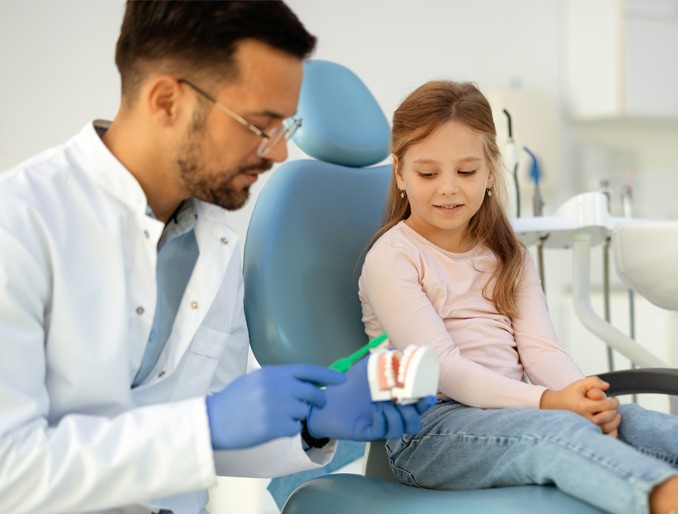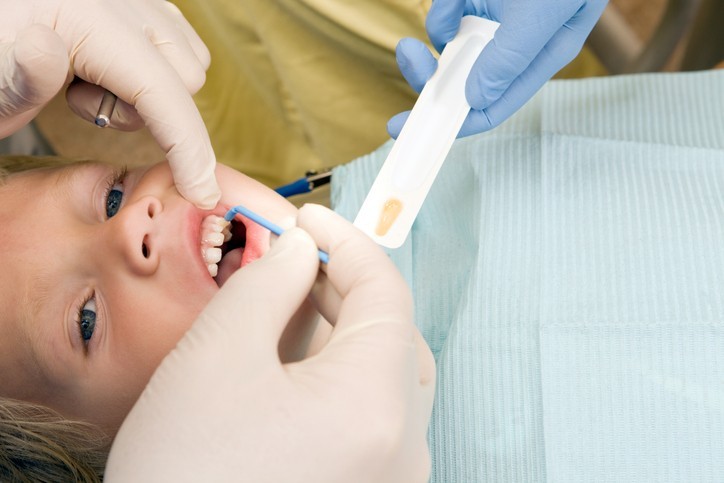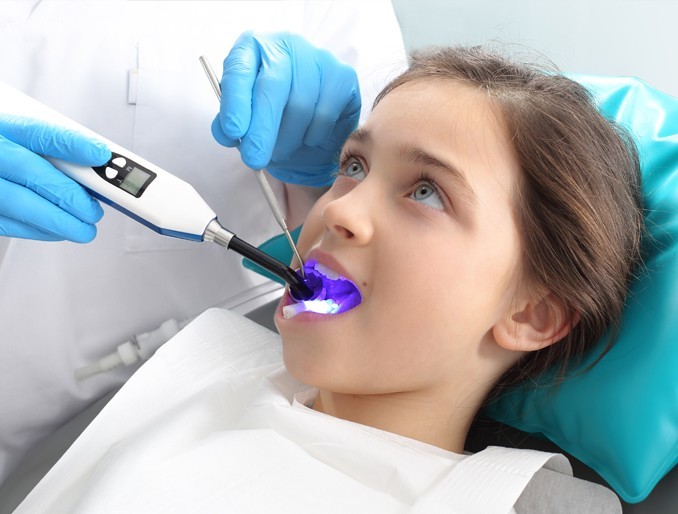Preventive dentistry is the foundation for a healthy smile. Routine exams and cleaning are essential to your child’s oral health. The American Dental Association recommends that children visit the dentist every six months for cleanings and exams.
Comprehensive Exam: The dentist will examine your child's teeth and gums for signs of tooth decay, gum disease, and other signs of potential oral health issues. The dentist may also want to take X-rays to aid in diagnosing potential problems that may develop beneath the surfaces of the teeth. During the exam, the dentist will also evaluate the patient’s bite and jaws for any issues and monitor growth and development to catch any alignment issues.
X-rays: Dental X-rays are not required at every appointment and will only be taken if necessary. Typically, X-rays are taken annually to ensure your child’s teeth are healthy and developing properly. If the dentist suspects a cavity or an infection, X-rays may be required more often and will be discussed as part of your child’s visit.
Dental Cleaning: Your child’s dentist or dental hygienist will perform an oral exam briefly. They will determine if there are any cavities and evaluate the quality of existing tooth restorations. The dentist or dental hygienist will gently remove plaque and tartar from your child's teeth. Their teeth will then be polished to remove surface stains and flossed to remove any remaining particles.


Fluoride: Fluoride is a mineral that helps strengthen tooth enamel and makes it more resistant to cavities. It serves as a coating to the teeth and prevents plaque from building up and hardening on the tooth’s surface. It also aids the remineralization process and disrupts acid erosion.
According to the ADA, fluoride intake is often recommended for infants and children between the ages of 6 months and 16 years. During this time, primary and permanent teeth are developing.
At Tiny Teeth pediatric dentistry, we offer fluoride treatment to prevent tooth decay for our patients. The process is quick and easily tolerated, as fluoride is applied to the teeth in a foam or varnish form using a brush.
In addition to receiving fluoride treatment at our pediatric dental office, fluoride can also be delivered through over-the-counter toothpastes, and mouthwash. Stronger mouth rinses and toothpastes can be prescribed as needed. Your child’s fluoride needs can be discussed in further detail during their appointment.
Sealants: Dental sealants are a protective coating made up of plastic resins. They serve as an extra layer of protection to areas of the teeth that are hard to keep clean with brushing alone. Sealants are applied to the grooves and pits of teeth. When a tooth is sealed, the chewing surfaces become smooth and are less likely to harbor plaque and develop cavities.
The process of applying sealants involves cleaning the teeth, drying them, and then applying a liquid sealant material into the crevices. The sealant is then cured with a special light, hardening it and creating a protective barrier.
Sealants may last for several years. A dental sealant only provides protection when it is fully intact, so if your child’s sealants come off, let the dentist know, and schedule an appointment for reapplication.
Sealants are not a substitute for brushing your teeth. It is important to maintain proper oral hygiene and keep up with professional dental cleanings. Also, sealants do not protect the in-between surfaces of teeth, so it is essential for your child to continue to floss daily.






